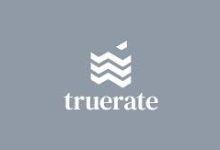The Ultimate Revelation Of Flagged Ppp Loan
Flagged ppp loan
In order to help small businesses that had been negatively damaged by the coronavirus pandemic, the PPP lending program was created. PPP loan recipients had to use the money for pre-approved costs like rent, payroll, and utilities.
Although the loan program was well-liked, some companies have been charged with misusing PPP funding – loan fraud. It’s possible that some loan recipients lied on their loan applications to qualify.
Businesses who got PPP loans occasionally use the money for things different than what they anticipated. For instance, some companies might have utilized the money from their PPP loans to acquire inventory that they might later sell for a profit.
All PPP loans exceeding $2 million will be audited, according to the SBA, and some loans have been marked for additional review. Businesses whose loans have been identified may experience greater SBA inspection.
According to a research study conducted in 2020, applicants who may have been double-dipping received between 10 and 15 percent of loans approved (taking too much money from relief programs). It was dishonest in some instances but unintentional in others. PPP was one of the numerous relief measures included by Congress in the COVID Act. This was done to aid in employee retention for businesses and to keep people out of poverty.
The “FinTech” lenders, who didn’t spend enough time carefully examining all the loan requests, are to blame, according to researchers in 2020. Under the PPP scheme, there was a lot of fraud and financial mismanagement.
Fraudulent PPP Loan Penalties
Fraudulent PPP loans are subject to severe fines. A person who falsifies information on a loan application in order to receive a PPP loan may be subject to a fine of up to $250,000, a maximum sentence of five years in prison, or both.
An individual may be subject to civil liability from the United States in the form of a civil action for any damages or losses brought on by the individual’s fraudulent behavior if they are found guilty of a crime connected to the PPP loan program.
An individual who gets a PPP loan by fraud may be subject to repayment of the full amount of the loan plus interest in addition to possible criminal and civil penalties.
What occurs then when a PPP loan is flagged is the question?
The government is sending out information requests to a lot of people. What should be done if a subpoena or request for information concerning the PPP loan is received is the question that banks and borrowers are wondering about.
As soon as a PPP loan is identified, you should get in touch with our PPP loan fraud lawyers. It is important to treat the responsibility of responding to the subpoena or inquiry request seriously. To help you navigate this process, you should enlist an advisor.
Before speaking with counsel, you shouldn’t do anything because doing so could result in the introduction of fresh evidence that could be used against you. Create a plan for how you will address the government with legal representation.
All loans worth more than $2 million are currently being audited. It can be worrying if you took out a loan for less than $2 million and it was highlighted. It’s possible that one of your employees is a whistleblower and is bringing a lawsuit against you in order to help the government uncover fraud and theft. Qui tam cases are what these cases are called. Federal and employment rules are very rigorous when it comes to how you should handle these situations. Both obstructing the government and taking action against the employee are prohibited.
What causes PPP loans to be flagged?
The SBA may raise a red flag over a PPP loan for a variety of reasons. Here are several situations that could raise a red flag on a loan application.
The business submitted multiple PPP loan applications to various lenders.
The business submitted a fraudulent loan application for a PPP.
They submitted a PPP loan application that was not comprehensive.
Unauthorized expenditures were made with PPP loan monies
Made a fraudulent certification to be eligible for PPP loan forgiveness.
Criminal investigators and federal prosecutors are searching into PPP loan fraud as well as other CARES Act crimes
How a PPP loan is handled after it is flagged?
You will receive a subpoena or another type of civil investigative demand if your PPP loan is flagged. The investigation’s course may change depending on the agency looking into you. The bottom line is that you must retain a PPP loan fraud defense attorney who can assist and advise you.
You might face charges from various federal authorities for a variety of offenses, including bank fraud, wire fraud, conspiracy to conduct fraud, making false representations to a financial institution, and more.
You should assume that you are being investigated for PPP loan fraud if your PPP loan is detected. This essentially marks the start of the inquiry into PPP loan fraud, and you should speak with a PPP loan fraud lawyer who can assist you.
When you learn that the PPP loan has been flagged:
-You should preserve all of your personal and professional records and avoid destroying anything.
-You should get in touch with our attorneys as soon as you can to receive assistance and direction.
Prison Time PPP
If a PPP loan recipient took out a loan based on fraudulent information, they may spend up to five years in jail and pay up to $250,000 in fines. The maximum sentence before the Paycheck Protection Program Flexibility Act was 30 years in prison.
Fraudulent PPP Loan Forgiveness
The beneficiary of a loan that is forgiven under the Paycheck Protection Program must provide documentation of how the loan proceeds were used and the number of employees employed during the period covered. False information provided to the SBA while requesting debt forgiveness might result in up to five years in jail and a fine of up to $250,000. The maximum sentence before the Paycheck Protection Program Flexibility Act was 30 years in prison.
Loan PPP Fraud
PPP loan fraud is a crime that can be prosecuted on a state or federal level. Federal False Claims Act, federal wire fraud, and federal mail fraud laws are used to prosecute PPP loan fraud. According to state laws, charges of state PPP loan fraud are brought
False claims must not be submitted to the federal government, according to the federal False Claims Act. All payment claims made to the federal government, including requests for PPP loans, are covered under the False Claims Act.
The use of interstate wire communications or the U.S. mail to facilitate any fraud plan is prohibited under federal laws against wire fraud and mail fraud. The prosecution must demonstrate that a defendant engaged in a fraud plan and used mail or interstate wire communications to facilitate the conspiracy in order to convict them of wire fraud or mail fraud.
All claims for payment filed to the federal government, including PPP loan applications, are subject to the federal wire fraud and mail fraud laws.
Applications for PPP loans as well as other claims for payment made to state and municipal governments are subject to the same wire fraud and mail fraud regulations.
The federal statutes against mail and wire fraud are comprehensive and can be applied to a wide range of offences. PPP loan fraud is just one of the many offenses that have been prosecuted under the wire fraud and mail fraud laws
The regulations governing PPP loan fraud vary from state to state. PPP loan fraud is specifically forbidden by law in some places. False claims cannot be submitted to state government under legislation in other states.
State PPP loan fraud laws are comprehensive statutes that can be applied to a wide range of offenses. PPP loan fraud and other offences have been prosecuted under state PPP loan fraud statutes.
Fraudulent PPP Loan Penalties
Federal law establishes the fines for PPP loan fraud. Depending on the precise crime prosecuted, federal PPP loan fraud penalties may vary
For each false claim that is submitted to the government, the False Claims Act imposes civil penalties of up to $11,000. In addition, treble damages, which triple the losses the government incurs as a result of the false claims, are imposed by the False Claims Act.
The maximum jail sentence under the wire fraud and mail fraud provisions is 20 years, and the maximum fine is $250,000
Penalties for state PPP loan fraud differ from state to state. PPP loan fraud is specifically forbidden by law in some places. False claims cannot be submitted to state government under legislation in other states.
Depending on the precise offense that is accused, state PPP loan fraud may have different punishments. PPP loan fraud carries criminal sanctions in some states. For PPP loan fraud, some states apply civil sanctions.
Fraudulent PPP Loan Statutes
Federal law establishes the federal PPP loan fraud statutes. The False Claims Act, the Wire Fraud Statute, and the Mail Fraud Statute are the federal statutes that apply to PPP loan fraud.
31 U.S.C. 3729–3733 contains the official text of the False Claims Act. The False Claims Act prohibits the submission of false claims to the federal government.
The wire fraud statute is codified at 18 U.S.C. 1343. The wire fraud statute prohibits the use of the U.S. mail or interstate wire communications in furtherance of any scheme to defraud.
The mail fraud statute is codified at 18 U.S.C. 1341. The mail fraud statute prohibits the use of the U.S. mail in furtherance of any scheme to defraud.
State PPP loan fraud statutes vary from state to state. Some states have laws that specifically prohibit PPP loan fraud. Other states have laws that prohibit the submission of false claims to the state government.
PPP Loan Fraud Resources
The following resources provide information about PPP loan fraud:
The U.S. Attorney’s Office for the Eastern District of Pennsylvania has a webpage that provides information about the office’s PPP fraud cases.
The U.S. Attorney’s Office for the District of Columbia has a webpage that provides information about the office’s PPP fraud cases.
The U.S. Attorney’s Office for the District of New Jersey has a webpage that provides information about the office’s PPP fraud cases.
The U.S. Attorney’s Office for the Southern District of New York has a webpage that provides information about the office’s PPP fraud cases.
The U.S. Attorney’s Office for the Western District of Pennsylvania has a webpage that provides information about the office’s PPP fraud cases.
The U.S. Attorney’s Office for the Middle District of Pennsylvania has a webpage that provides information about the office’s PPP fraud cases.
The U.S. Small Business Administration has a webpage that provides information about the Paycheck Protection Program.
The U.S. Department of Justice has a webpage that provides information about the office’s PPP fraud cases.
The U.S. Securities and Exchange Commission has a webpage that provides information about the SEC’s PPP loan fraud cases.
The Federal Bureau of Investigation has a webpage that provides information about the FBI’s PPP loan fraud cases.
The U.S. Department of the Treasury has a webpage that provides information about the PPP loan program.
The U.S. Small Business Administration Office of Inspector General has a webpage that provides information about the office’s PPP loan investigations.
What Happens During the Investigation?
Usually the first step in an investigation will be verification from the source material of the documentation you provided. If you’ve submitted bank statements flagged for potential fraud, they’re going to subpoena the bank and get those statement originals. If they’re not the same, that’s fraud. Their investigation can conclude right there. Same thing with the IRS. Investigators will check on the employees you reported in the last two years of your taxes, and because the IRS is a government agency, verifying W2s or 1099s is easy.
Another step might be contacting the individual employees you reported on your documentation. In addition, I suspect they will also be contacting you accountant, if you have one, who helped you prepare these documents. Some accountants might be in trouble if they’ve helped their clients submit fraudulent documentation, which will come back on them.


